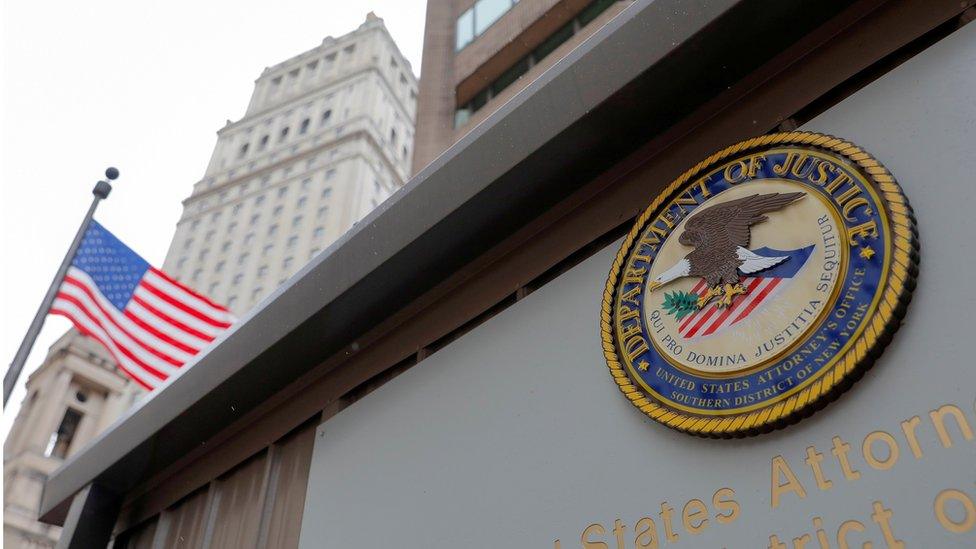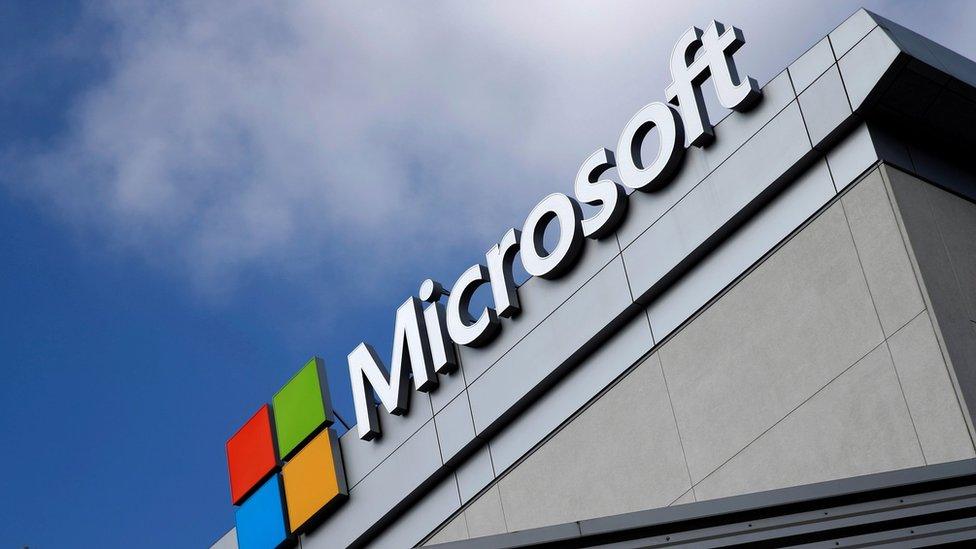SolarWinds: Top US prosecutors hit by suspected Russian hack
- Published

New York's four prosecutors had their offices hacked
Nearly 30 top US prosecutors had their office's email accounts hacked during a major breach last year, the Justice Department says.
The attack on users of the software SolarWinds - which the US has blamed on Russia - was the worst-ever cyber-espionage attack on the US government.
The department says 27 US attorneys had at least one office computer hacked.
That has raised fears the hackers may have accessed sensitive information, including the names of informants.
"It's potentially very serious," Gil Soffer, a former federal prosecutor, told the BBC.
He said prosecutors' emails contain "very sensitive, very confidential and often very secret information".
If the hackers got hold of secret informants' identities, they could use the information to "blow their cover," he added.
The hack, which gave cyber-criminals potential access to 18,000 government and private computer networks, was made public last December.
Those hit by the breach include 80% of Microsoft email accounts used by employees at the four New York's attorney offices - which handle some of the most prominent prosecutions in the country.
"There are very sensitive investigations going on within those offices," former federal prosecutor Renato Mariotti said.
They include many high-profile financial investigations, which means any leaked information could be used for blackmail or extortion, he said.
The department says hackers compromised the accounts as early as May 2020 - some seven months before the SolarWinds hack was made public.
The department said all victims had been notified and it is working to mitigate "operational, security and privacy risks" caused by the hack.
It did not reveal what kind of information had been taken.
In April, US President Joe Biden's administration announced sanctions against Russia in response to the SolarWinds breach and other cyber attacks.
Russia has denied any wrongdoing.
But Mr Mariotti warned that if a foreign government got hold of sensitive legal files, it could try to use them to shape public debate or influence elections.
"There are all sorts of reasons why a foreign government might want to have that kind of information," he said.
Related topics
- Published16 December 2020

- Published7 July 2021

- Published19 July 2021
